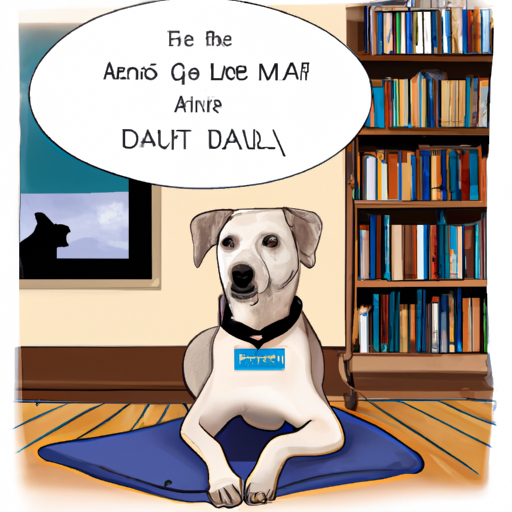Dogs are undoubtedly man’s best friend, but when their barking becomes incessant, it can be a source of frustration for you and your neighbors. However, by using a few simple strategies and techniques, you can help your furry friend stay calm and quiet.
H2: Understanding the Root Cause
Understanding why your dog is barking is the first step in addressing the issue. Different barks can signify different needs or feelings. Your dog might be barking because they’re:
- Bored: Dogs need mental and physical stimulation. Without it, they can become frustrated and start barking.
- Anxious: Some dogs bark when they’re anxious or scared. This can be due to separation anxiety, fear of strangers, or loud noises.
- Seeking Attention: Dogs sometimes bark to get your attention. They may want to play, go outside, or just want your company.
Take note of when and why your dog barks to help identify patterns and triggers.
H2: Training Your Dog
Once you’ve identified why your dog is barking, you can start to train them. Here are some strategies you might find helpful:
- Positive Reinforcement: Reward your dog when they’re quiet, especially in situations where they normally bark. This could be with a treat, a toy, or just some praise and affection.
- Ignore the Barking: If your dog is barking for attention, completely ignore them. Don’t look at them, don’t talk to them, don’t touch them. Once they stop barking, then you can give them attention.
- Use a Distraction: If your dog starts barking, distract them with something they love, such as a favorite toy or a tasty treat.
Remember, consistency is key when training your dog. It may take some time, but with patience and perseverance, you’ll start to see results.
H2: Professional Help
If your dog’s barking continues despite your best efforts, it may be time to seek professional help. A professional dog trainer or a behaviorist can provide tailored advice and strategies to help manage your dog’s barking. Here’s a simple table to help you decide:
| Considerations | Dog Trainer | Animal Behaviorist |
|---|---|---|
| Training | Basic obedience | Complex behavior |
| Cost | Lower | Higher |
| Availability | More common | Less common |
H2: Medical Intervention
In some cases, excessive barking might be a sign of a medical issue. If you’ve tried everything else and your dog is still barking excessively, a trip to the vet might be in order. The vet can rule out any medical issues that might be causing the barking.
H2: Creating a Calm Environment
Creating a peaceful and calm environment can also help reduce your dog’s barking. Here are some tips:
- Play calming music
- Use calming scents like lavender
- Keep a regular routine
- Provide plenty of exercise and mental stimulation
Frequently Asked Questions (FAQs)
Q: Can certain breeds be more prone to barking?
A: Yes, some breeds are more vocal than others. However, any breed can develop a barking problem.
Q: How long will it take for my dog to stop barking?
A: It varies from dog to dog. Consistency is key — keep up with your training and you should start to see results.
Q: Can I use a bark collar on my dog?
A: It’s generally recommended to try training and behavior modification first. Bark collars should only be used under the guidance of a professional.
Remember, your dog isn’t barking to annoy you. They’re trying to communicate something. With patience, understanding, and the right techniques, you can help your dog stop barking.



